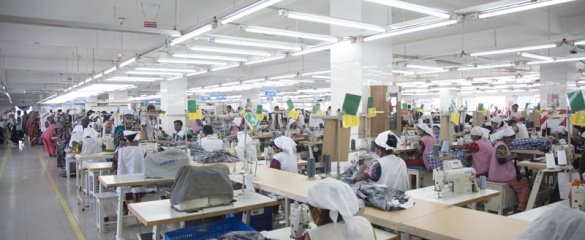Trade openness can protect developing countries against economic shocks, researchers believe.
An analysis of the effects of trade diversification or specialisation on national economies found that in the last decades of the 20th century, countries that increased trade with China and India saw reduced volatility in their economies, a finding that researchers say could feed into to an open trade policy for today's developing countries.
Although the effect found in the study was not large, it accounts in part for the ‘Great Moderation’, according to Professor Silvana Tenreyro, from the London School of Economics, UK.
The Great Moderation is a term used in economics to describe the period beginning in the mid-1980s and lasting for around 20 years when the volatility of economic indicators such as gross domestic product, industrial output and unemployment rates began to decline because of factors including changes in technology, working practices, and the role of central banks.
Professor Tenreyro’s FLUCTUATIONS project, funded by the EU’s European Research Council (ERC) to look at the issue, and changes in the housing market, showed that trade with other countries leads to two effects – specialisation and diversification.
“Countries tend to specialise more in sectors in which they have a comparative advantage,” she said. “This effect can sometimes lead to more volatility, as the country is more exposed to shocks in that sector.”
However, another effect is diversification – by trading with different partners, an economy can diversify away from domestic shocks as it can both sell its goods and services to many countries, and buy products from many countries.
During the project she analysed trade flows and costs, and found that a fall in trading costs has contributed to lower volatility.
“This channel tends to reduce volatility in an economy – most of the time,” Prof. Tenreyro said.
Her work is significant because there had been no previous quantitative research aimed at measuring how much of an effect diversification or specialisation has on a country’s economy, she says, and her research could have important implications for policymakers, particularly those in developing economies.
“For policymakers in developing countries, the main message is that trade openness can actually reduce their volatility,” she said. “This result pushes the debate against trade protection policies.”
While trade openness can reduce volatility, trade protection can also have significant economic effects. While protectionism wasn’t a major factor in the 2008 financial crisis, researchers now think it did play a bigger role in the 1929 to 1939 Great Depression than previously believed.
“In the history of the Great Depression, the role of protectionism has been talked about a lot – previous work has suggested that it didn’t play a great role,” said Kevin Hjortshøj O'Rourke, Chichele Professor of Economic History at the University of Oxford, UK. “But with more careful, disaggregated analysis we may find that protectionism had more of a role than it was given credit for.”
The TradeDepression project, which Prof. O’Rourke coordinates, aimed to explore that role further.
The project was funded by the ERC to create a database of statistics relating to the Great Depression, and to explore both the short- and long-term relationships between the Great Depression, trade and trade policy.
Studying the Great Depression with fresh data should reveal more about the causes of the slump in trade and the role of protectionism, as well as about the consequences of interwar protection for employment and growth in the short and long term, Prof. O’Rourke hopes.
While the project aims to eventually draw concrete conclusions on the impact of protectionism that should help the policymakers of today, he says it is too soon for that.
“We have compiled a lot of data and will be analysing it for years to come,” he said.




